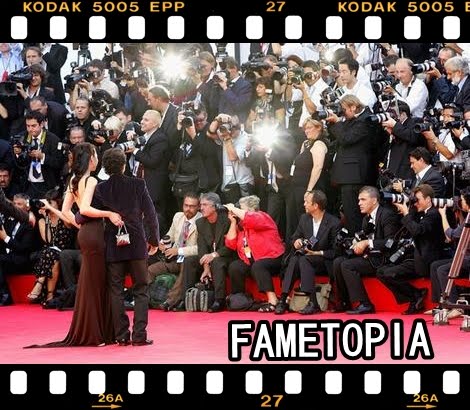Recently, this question has plagued many film and TV buffs. The list of 2011 Golden Globe nominees for Best Picture — including the critically panned “The Tourist,” starring Johnny Depp and Angelina Jolie — was particularly puzzling, making befuddled movie enthusiasts (myself included) wonder if the film was only nominated because obscure HFPA journalists wanted the chance to mingle with Jolie and Depp at the big awards show.
Thank God for Ricky Gervais, who took this controversy and ran with it as host of the 2011 Globes. The British comedian used the host’s pulpit to roast both the HFPA and those lining up to receive their awards. Borderline offensive but utterly hilarious, Gervais breathed life and excitement into an awards ceremony devoid of any big surprises.
Gervais’ jokes provoked varied reactions from the audience. Some actors such as Christian Bale (or was that Jesus?) poked fun at the awards ceremony during their acceptance speeches, while Woody Allen and Tom Hanks used their time onstage to playfully decry Gervais’ heavy-handed humor.
For those who watch the Golden Globes for the awards, this year’s show was a disappointment. But those watching the ceremony for the drama were undoubtedly satisfied. While it is quite unlikely that Gervais will ever be allowed to host the awards show again (in recent news articles, Gervais acknowledges that his over-the-top performance is unlikely to win him more hosting invitations), I am eternally grateful that he went out with a bang. —Alec Brodsky
Best of Film
“The Social Network” dominated the Golden Globe Awards Sunday night, earning the Best Motion Picture Drama prize as well as awards for its direction, screenwriting and musical score.
Although the Golden Globes don’t carry the critical clout of the Academy Awards, they are generally considered a good predictor of Oscar success. With its wins at the Golden Globes and positive critical reception, we can certainly expect to hear the score of “The Social Network” throughout the night of Sunday, Feb. 23 during the Academy Awards.
Described by Rolling Stone Magazine as “the film that defined a generation,” the movie is indeed impressive — well written, visually brilliant and scored fantastically. As writer Aaron Sorkin said when accepting his screenwriting award, director David Fincher managed to make computers interesting by using fast-paced scenes and sharp, witty dialogue.
But does “The Social Network” define a generation? For a film to do so, it must transcend its profit motive to express the mood of the times. People watching “The Social Network” decades from now should be able to have an idea of what it was like to live in the early 21st century, just as we can understand the angst and alienation of teenagers in the 1950s when we watch the classic “Rebel Without a Cause” (1955).
Our generation — which has matured in the era of computers, a financial crisis on Wall Street and the threat of terrorist attacks — can be defined by its individualism and rogue entrepreneurship in a quickly globalizing world. In that sense, “The Social Network” comes pretty close to putting on screen what it means to be right here, right now.
While “The Social Network” beat out serious competition like “The King’s Speech” for its Best Motion Picture Drama award, the winners for the best performance in a dramatic picture were fairly easy to predict. For drama, Colin Firth took the Globe for “The King’s Speech” and Natalie Portman won for “Black Swan.” Both actors were predicted favorites, although Jesse Eisenberg’s performance in “The Social Network” and Nicole Kidman’s delivery in “Rabbit Hole” posed a real threat.
In comedy, the race was a bit more contested, with “The Kids are Alright” triumphing over Tim Burton’s fantastical “Alice in Wonderland.”
In the best performance category, Annette Bening beat out her co-star, Julianne Moore, while Paul Giamatti’s performance in “Barney’s Version” won out over Johnny Depps’ performances in “Alice in Wonderland” and “The Tourist.” —Gavin Huang & Jackie Donohoe
Best of TV
For the most part, the Golden Globes results for television turned out as critics and viewers had expected. It came as no surprise, for example, that the critically lauded “Boardwalk Empire” snagged the Best Television Series Drama award. It is notable, though, that “Boardwalk Empire” beat out “Mad Men,” which had won the award for the past three years.
Steve Buscemi, the star of “Boardwalk Empire,” took home the award for Best Performance by an Actor in a Television Series Drama, while Katey Sagal from “Sons of Anarchy” won the prize for Best Performance by an Actress in a Television Series Drama.
As anticipated by many critics, “Glee” won the trophy for Best Television Series Comedy or Musical, beating out popular critical hits like “Mad Men,” “30 Rock” and “Nurse Jackie.” Even more impressive, a few of the actors on “Glee” gained recognition for their performances in supporting roles.
For the second year running, Jane Lynch took home the award for Best Performance by an Actress in a Supporting Role for her part as the malicious cheerleading coach Sue Sylvester, while Chris Colfer won the award for Best Performance by an Actor in a Supporting Role for his much praised portrayal of gay teen Kurt Hummel.
The mini-series “Carlos” — which tells the life story of a Venezuelan terrorist — won in the category of Best Mini-Series Or Motion Picture Made for Television. —Sydney Ayers


No comments:
Post a Comment